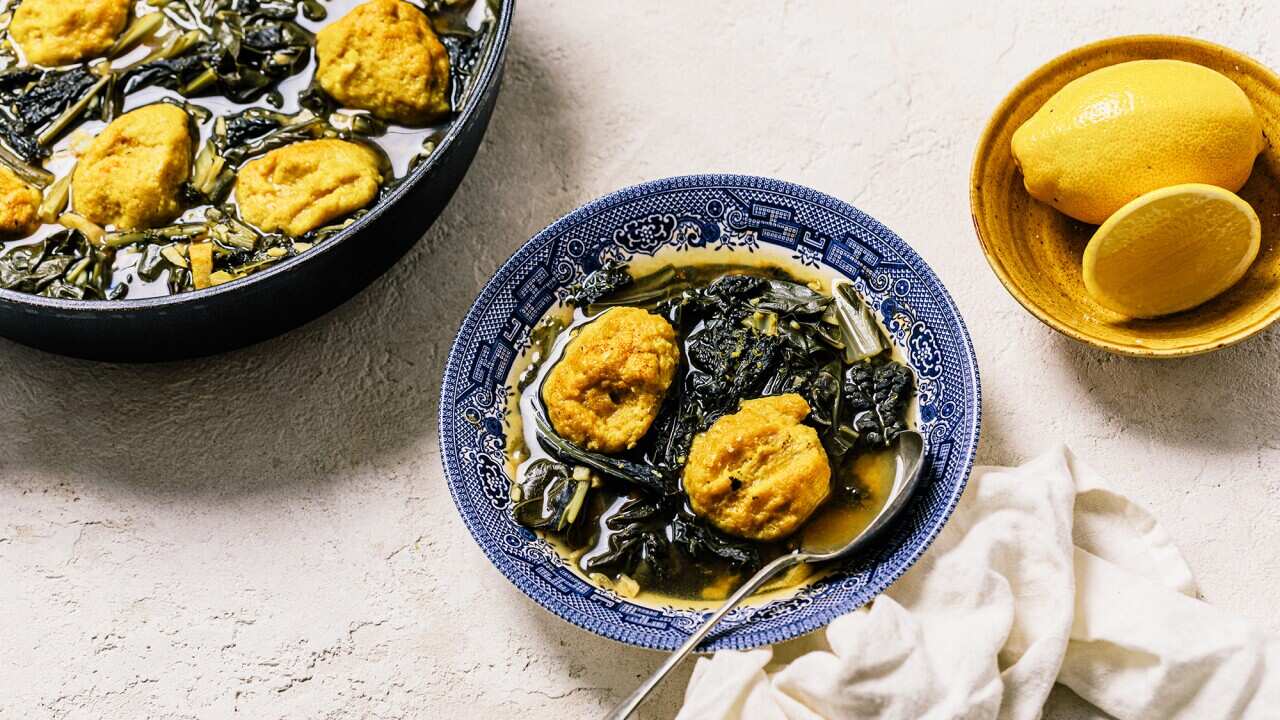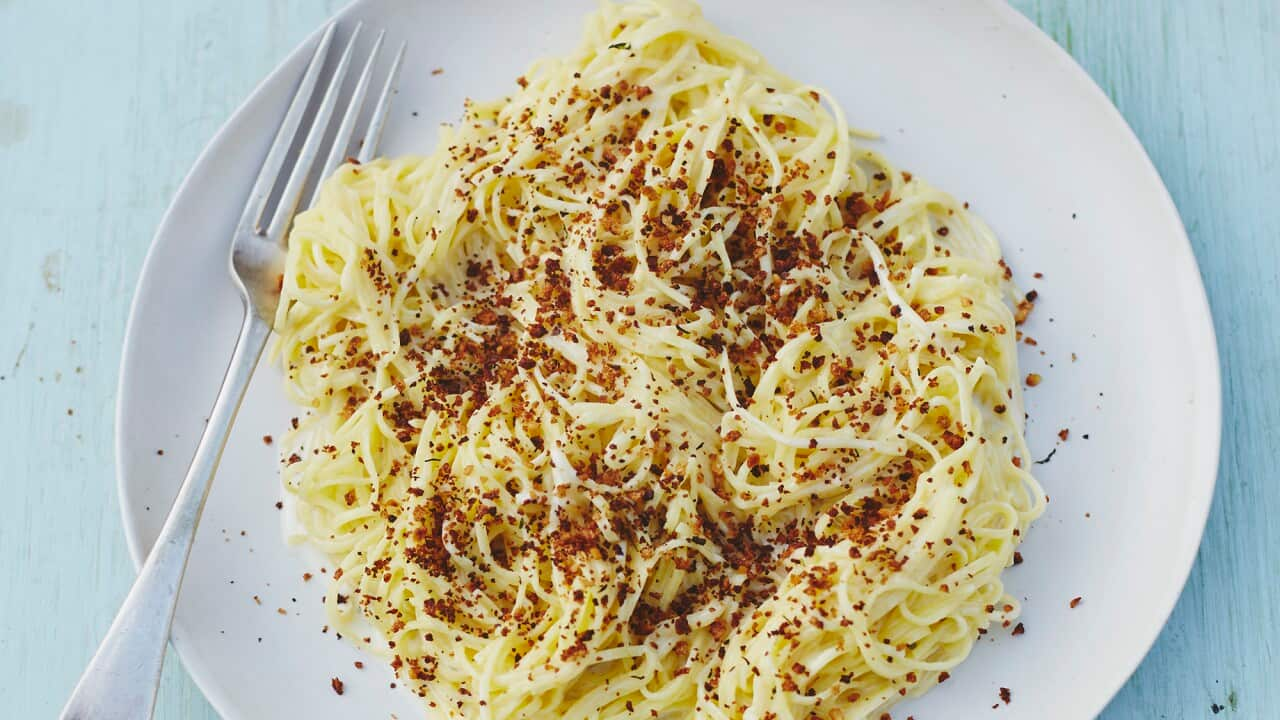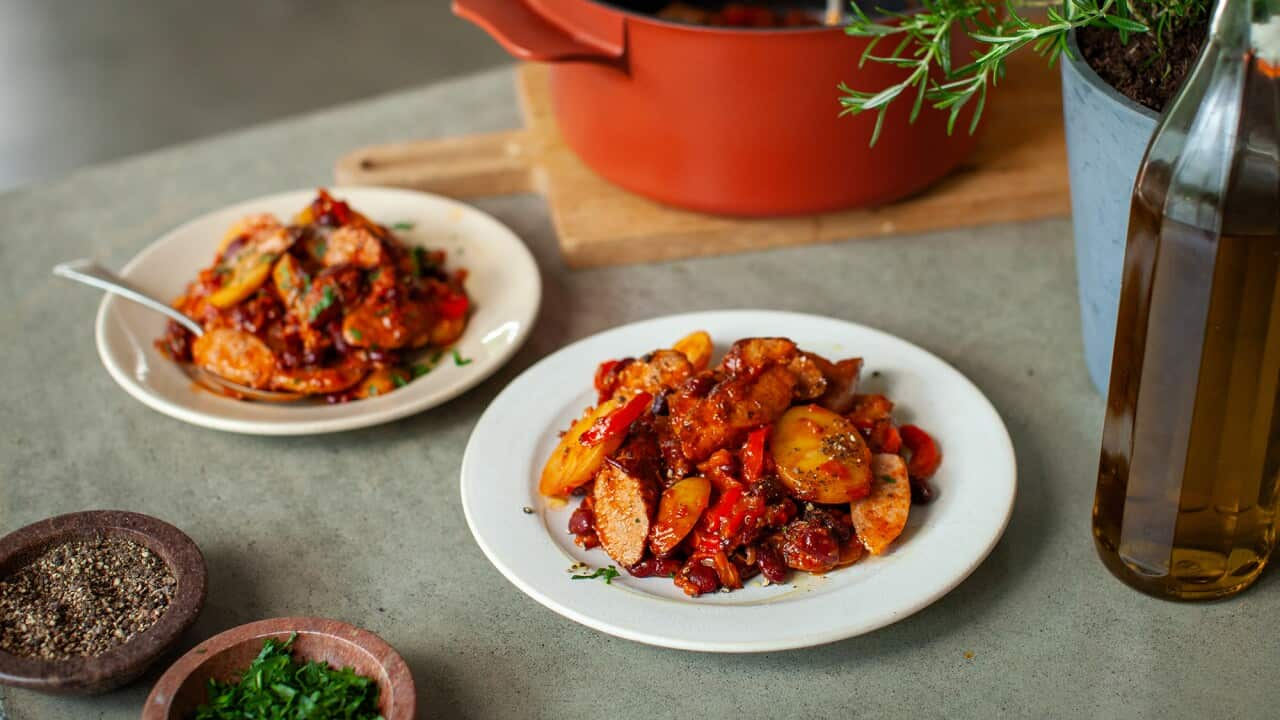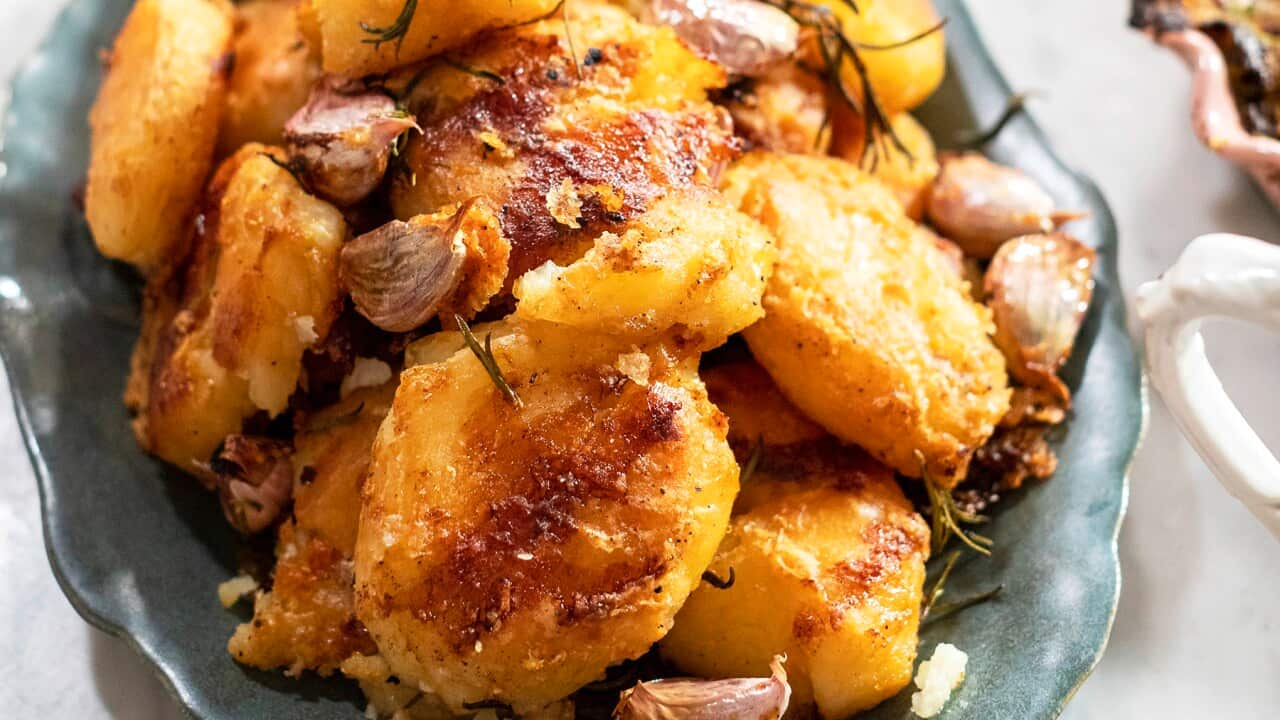makes
10
prep
30 minutes
cook
25 minutes
difficulty
Mid
makes
10
serves
preparation
30
minutes
cooking
25
minutes
difficulty
Mid
level
They are crisp outside and soft within with lots of distinct flavours and textures. Eating them fresh on a bustling street with a cup of masala tea was one of my most memorable Indian breakfast experiences. This is as close to the original as I could get without a tandoor oven and it is really moreish. It is normally made with plain flour, but I sometimes make it with chapatti flour so it is healthier; or I mix the two. This bread is also amazing cooked on a barbecue: just brush with a little ghee or butter before serving.
Ingredients
Dough
- 300 g (2⅓ cups) plain (all-purpose) flour, or chapati flour, plus more to dust
- 1 tsp sugar
- 1 tsp salt
- ¼ tsp baking powder
- 2 tbsp ghee, plus more to form and cook
- 175–185 ml (scant to generous ¾ cup) water
Filling
- 650 g (1 lb 7 oz) cooked floury potatoes, ideally baked, or boiled in their skins, or microwaved until soft, cut into cubes
- ½ red onion, finely chopped
- 1 tbsp ghee
- 2 tsp coriander seeds
- ½ tsp ajwain seeds (carom seeds)
- ½ tsp cumin seeds
- ½ tsp garam masala (fresh if possible), or to taste
- large handful of finely chopped coriander (cilantro)
- ½ to 1 Indian green finger chilli (chile),
- finely chopped salt
Resting time: 1 hour
Instructions
Start with the dough. In a bowl, mix together all the dry ingredients. Add the 2 tbsp ghee and the smaller amount of water and bring it together, adding the remaining water if needed. The dough will sticky in the beginning, but it will absorb the water and soften as it is kneaded. Divide the dough evenly into 10 balls, cover with a dish towel and leave to rest for around 1 hour.
Meanwhile, mix together the ingredients for the filling with your hands, almost squashing the potatoes in your fist, so the mixture is mostly smooth and homogenous. Taste and adjust the salt.
Dust a work surface with flour and take a ball of dough. Flatten it with your fingers, dust more flour on top and roll out into a large, thinnish round. Brush or smear with ½ tsp ghee. Sprinkle over more flour, then take about one-tenth of the filling (around one fistful) and crumble it over the top. Pat down into a thin layer all over the dough, leaving the edges clean.
Taking one edge, roll, Swiss-roll style, into a rope, pulling the ends a little to elongate into a longer rope. Now coil the rope like a snake charmer would, into a spiral, and press into a round again, using a little flour to roll each bread out into a medium-thickness circle; you don’t want the filling to peep through but, if it does, it is OK. Cover with a damp dish towel. Repeat to form and stuff the rest.
Heat a tava or frying pan over a high heat.
Place a bread coil on the pan and cook for 20–30 seconds, then flip over; if it is sticking, use a spatula to loosen any stubborn bits (it will be the filling poking out). Cook for another 20–30 seconds, smear the upper surface with a little ghee and flip over again. Now drizzle a little more ghee on this side and cook both sides until it has lovely golden swirls and is nice and crispy.
Keep warm while you repeat to cook the rest and ideally serve them straight away. Ideal served with .
Recipe from I Love India by Anjum Anand, photography by Martin Pool (Hardie Grant Books, hb, $39.99). Read Anjum’s essay on the many regional variations of Indian food .
Cook's Notes
Oven temperatures are for conventional; if using fan-forced (convection), reduce the temperature by 20˚C. | We use Australian tablespoons and cups: 1 teaspoon equals 5 ml; 1 tablespoon equals 20 ml; 1 cup equals 250 ml. | All herbs are fresh (unless specified) and cups are lightly packed. | All vegetables are medium size and peeled, unless specified. | All eggs are 55-60 g, unless specified.
They are crisp outside and soft within with lots of distinct flavours and textures. Eating them fresh on a bustling street with a cup of masala tea was one of my most memorable Indian breakfast experiences. This is as close to the original as I could get without a tandoor oven and it is really moreish. It is normally made with plain flour, but I sometimes make it with chapatti flour so it is healthier; or I mix the two. This bread is also amazing cooked on a barbecue: just brush with a little ghee or butter before serving.









